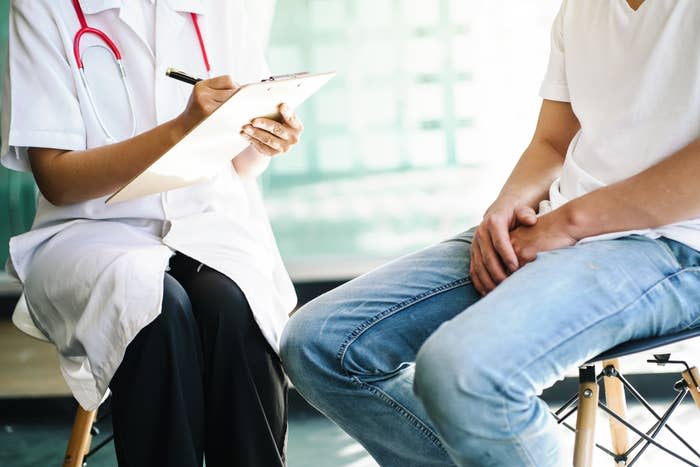
By Keighla Schmidt, Staff Writer
Sue DeGrood is a woman her husband Brian remembers as a caring person who liked to spend time gardening in their yard and doing things with their teenage daughter Allison. Above all else, Sue “always had the time to help other people.”
When she could no longer give her time, Sue gave something else.
Last year, Sue died of a brain aneurism. On that same day four people learned their lives would continue because they would receive Sue’s organs.
Advertisement
Advertisement
“We’re losing a loved one,” Brian said. “But to be able to help someone else save or extend their lives – that’s a good feeling.”
A 42-year-old man received a kidney, a 60-year-old woman received Sue’s other kidney, a 55-year-old woman will live longer with Sue’s liver and a 25-year-old man breathes better with her lungs. Additionally, her eyes were donated to the Lions Eye Bank.
“It’s a good feeling to know we’ve helped someone out who has been suffering,” Brian said.
LifeSource, a nonprofit organization that manages organ and tissue donation in Minnesota, North Dakota, South Dakota and part of western Wisconsin, is playing host to a Donor Award Ceremony May 28 in Bloomington with Gov. Tim Pawlenty and First Lady Mary Pawlenty. The ceremony is an effort to honor families like the DeGroods, of Savage, for their loved one’s gift of life.
Advertisement
Advertisement
“It’s a really nice sign of appreciation,” Brian said.
Sue’s story
When Brian arrived at the hospital, he recalls being told his wife of nearly 18 years was brain dead.
“The neurologist talked to us while she was on life support,” Brian said. “He said even if he was to do corrective surgery, she’d likely be a vegetable.”
Because of the aneurism, the majority of Sue’s other organs were still intact, but her driver’s license did not indicate that she was an organ donor.
“Allison and I talked and we knew (Sue) was a very gifted person and a very giving person and we know she would have wanted to donate,” Brian said. “As tragic as it sounds, she lost her life, but she saved lives.”
Advertisement
Advertisement
More in U.S.
Helping the shocked DeGrood family make their decision was a LifeSource family support coordinator.
“They were super, super, super great people,” Brian said of LifeSource. “They did a phenomenal job explaining everything to us and answering the questions we had … We were in a state of shock and we were unhappy and mad. They were very well trained and professional in their job.”
Brian said LifeSource helped make the decision a comfortable one.
“After I offer condolences to the family, I ask them what happened and to tell me about their family member – I think that’s a really important piece,” said Mary Mahoney a LifeSource family support coordinator. “They’ve been in the hospital for awhile and they’re dealing with the tragic situation of losing someone they love and they want to tell their story. After everything becomes clear – there really are no magic words.”
Advertisement
Advertisement
She added while a mask of devastation overtakes almost every face she sees, people are very generous.
“I don’t think of myself as someone who asks for organs. I have something to offer the family so they can take at least a little good out of the situation for people who are living their worst nightmare,” Mahoney said of her job.
Brian said his wife had “such a great heart,” and he really wanted to donate her heart, but was told the severity of her brain aneurism prevented that from being a possibility.
Brian and Mahoney both stressed the unique opportunity Sue’s catastrophic situation created.
Advertisement
Advertisement
According to LifeSource, each day 17 people die waiting for a transplant and a new name is added every 13 minutes to the waiting list. But not everyone can be a donor.
“Most of us will die in a circumstance that will not allow us to donate organs,” Mahoney said. “You need to be on a ventilator to keep your organs alive.”
Brian said he recalls being told most people die of tragic accidents or have their bodies degenerate before donation can be an option.
“It’s why there’s such a gap,” Mahoney said. “There is a very limited pool of potential candidates.”
Brian, who has the donor box checked on his license, said the conversation about organ donation is one everyone should have with the people close to them.
Advertisement
Advertisement
“Its stuff you might not think about,” he said. “But make your wishes known.”
Keighla Schmidt can be reached at kschmidt@swpub.com.
To learn more about LifeSource and organ donation, go to their Web site, http://life-source.org/.
EMEA Tribune is not involved in this news article, it is taken from our partners and or from the News Agencies. Copyright and Credit go to the News Agencies, email news@emeatribune.com Follow our WhatsApp verified Channel




